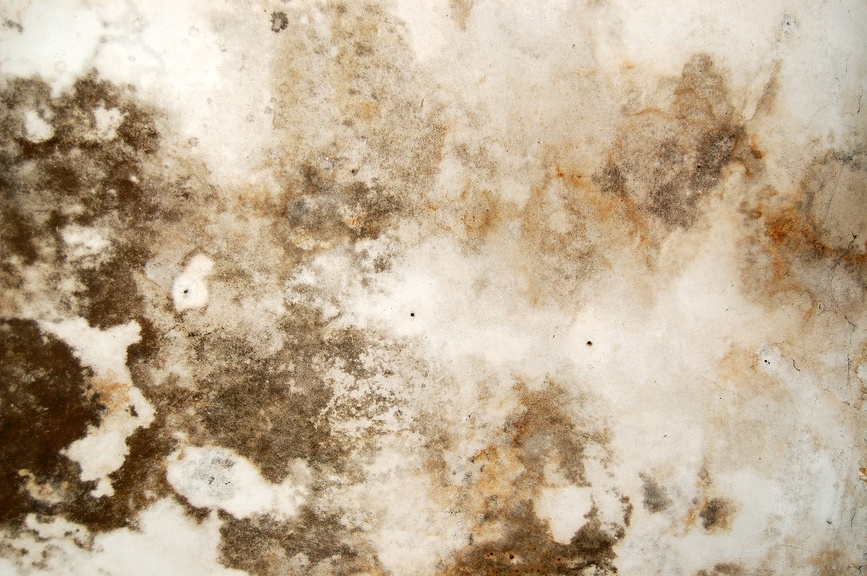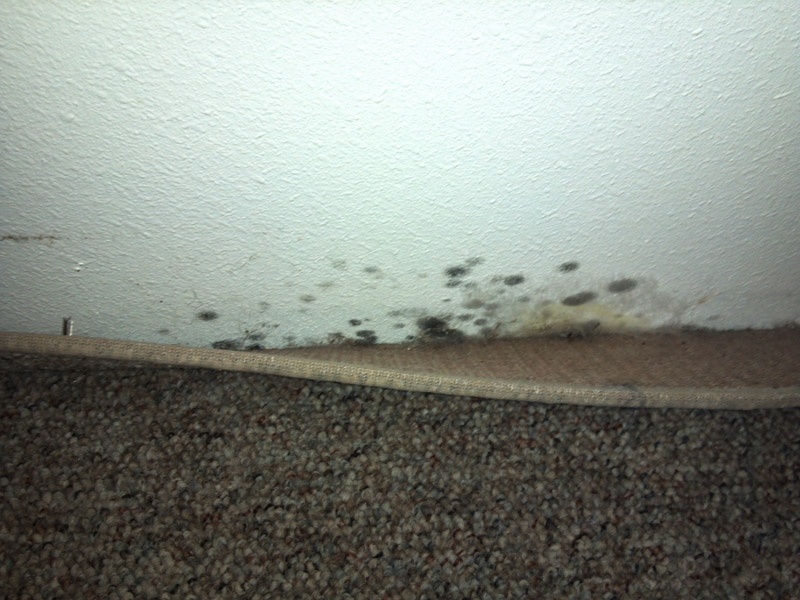Mold Removal & Damage Restoration
Mold is everywhere - Keep it under control.
While we almost never see it, mold is a naturally occurring substance in the environment. When mold spores enter the home and are exposed to excessive humidity or moisture and room temperatures, mold will quickly grow. Left undiscovered, it can cause structural damage and in some cases serious health problems. If you’ve discovered or suspect you have a mold problem, call the mold remediation and removal experts at Flood Master of St George.
According to the Environmental Protection Agency (EPA) website, “It is necessary to clean up mold contamination, not just to kill the mold. Dead mold is still allergenic, and some dead molds are potentially toxic.” At Flood Master of St George, we are certified by the Institute of Inspection, Cleaning and Restoration Certification (IICRC) or the American Council for Accredited Certification (ACAC) in mold remediation. We consult with indoor environmental professionals as required to determine the extent of the mold infiltration and remediation procedures. After we have completed the work, we use clearance tests to verify that the job was done properly.

The Facts about Mold:
- 24 to 48 hours for mold to start to grow.
- Potential health risks and symptoms from mold exposure; including allergic reactions, asthma, and other respiratory problems.
- Mold can grow on almost any type of material if moisture is present. Typically mold is caused by leaking pipes, ceilings, or roofs. Areas with high moisture and poor ventilation (bathrooms, storage areas) are also high culprits for mold growth.
- The key to mold control is moisture control.
- The longer it grows the more damage it can cause.
- Mold infestation can cause the value of your home or building to drop tremendously.
- If it has not been cleaned and treated through proper remediation efforts, it may not be inhabitable.
Why Flood Master of St. George?
Whether it’s called mold, mildew or black mold, Flood Master of St. George treats all types of mold problems. You may be tempted to take care of the mold by yourself, but mold removal is not a “do it yourself job”. What you may not know it that most chemicals, including bleach, have been proven ineffective against taking care of mold in the long run. When you apply bleach to try and kill the mold, it actually facilitates mold growth. The chlorine molecules stay on the surface and will only kill a fraction of the mold while the water in the bleach sinks into the material, actually promoting mold growth. Mold removal requires professional chemicals, equipment and training and Flood Master of St George knows just what to do to get rid of it…the right way!

After contacting us, the first step we would take is inspecting the area of concern to determine the severity of the mold growth. During a mold inspection we will test the air around the area to detect any mold spores in the air. We can identify the types of mold present and come up with a remediation plan to eradicate the mold. Sometimes the source of the mold can be hard to detect, and if not detected, the mold will come back. It is important not to miss anything, which is why we suggest one of our Flood Master highly trained certified technician to evaluate the situation.
We know that mold can be huge burden and worry for home owners and we want to get your home safe and back to normal as quick as possible. We want you breathing good, healthy air again! With our highly trained certified technicians, you will have peace of mind that the mold problem is removed quickly and correctly. We also provide clearance tests to verify that you are free and clear of any mold spores. As a result of the process, homeowners can experience an improvement in indoor air quality and reduced health risks. Contact Flood Master St George today for an evaluation and we can discuss a mold remediation plan for your home.
How do I prevent mold growth?
Controlling moisture is the best way to prevent mold growth. Mold spores are always present and there is really no way to eliminate all mold indoors. However, the key to keeping things under control and preventing mold is to implement moisture control. Mold will grow at a rapid rate on many surfaces, but by reducing the moisture in the environment with ventilation problems, the chances of developing a mold problem is greatly reduced, saving you time, money, and a big headache. Below are some tips to help keep moisture under control.
- Maintain humidity levels at 30-50%. In St George, we don’t experience a lot of humidity in the air, but if you have a part of the house with poor ventilation, (such as the bathroom after a hot shower) humidity can build up. Areas around dishwashers and dryer vents can also be culprits. Make sure these areas are vented properly to reduce the growth of mold.
- Don’t let water build up anywhere in your home! Wipe the shower walls and doors after use. Quickly move wet clothes from the washer to the dryer to prevent mold from forming. On flooring, install a vapor barrier over concrete floors and regularly lift up carpet and rugs if there has been a water spill or leak. Never let standing water sit. Make sure water always has a chance to dry out before it becomes a serious mold problem.
- Keep air flowing! Proper air ventilation is the best defense against mold. Whether there has been an issue with mold or not, inadequate air flow will produce mold or make it grow back. You need to address the root of the problem by having proper air flow in wet areas. The biggest area to focus on is in the bathroom. Opening a small window or replacing a worn out ventilation fan will save you time and money from dealing with mold in the future.
My landlord or builder will not take any responsibility for cleaning up the mold in my home. Where can I go for help?
If you feel your property owner, landlord, or builder has not been responsive to concerns you’ve expressed regarding mold exposure, you can contact your local board of health or housing authority. Applicable codes, insurance, inspection, legal, and similar issues about mold generally fall under state and local (not federal) jurisdiction. You could also review your lease or building contract and contact local or state government authorities, your insurance company, or an attorney to learn more about local codes and regulations and your legal rights. You can contact your county or state health department about mold issues in your area to learn about what mold assessment and remediation services they may offer. You can find information on your state’s Indoor Air Quality program at http://www.cdc.gov/nceh/airpollution/indoor_air.htm.
